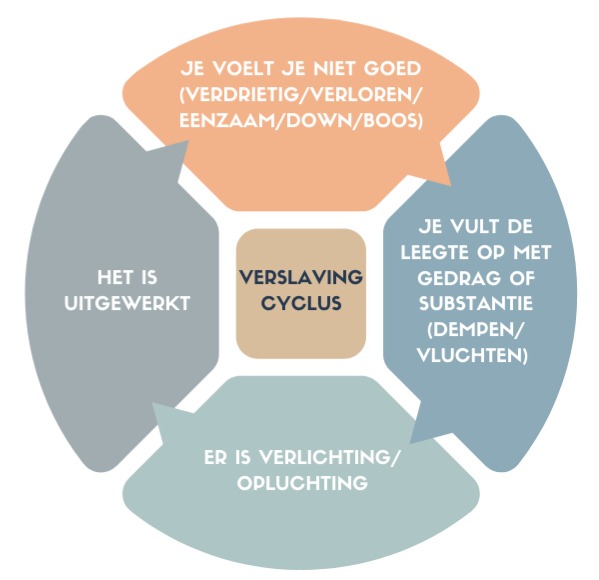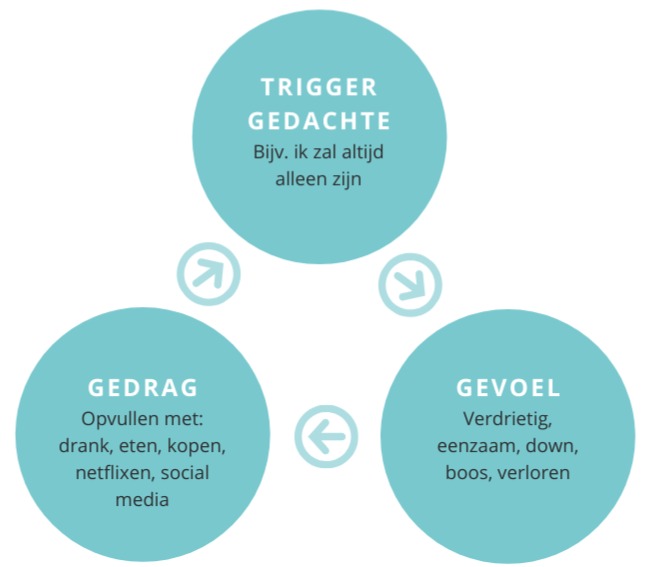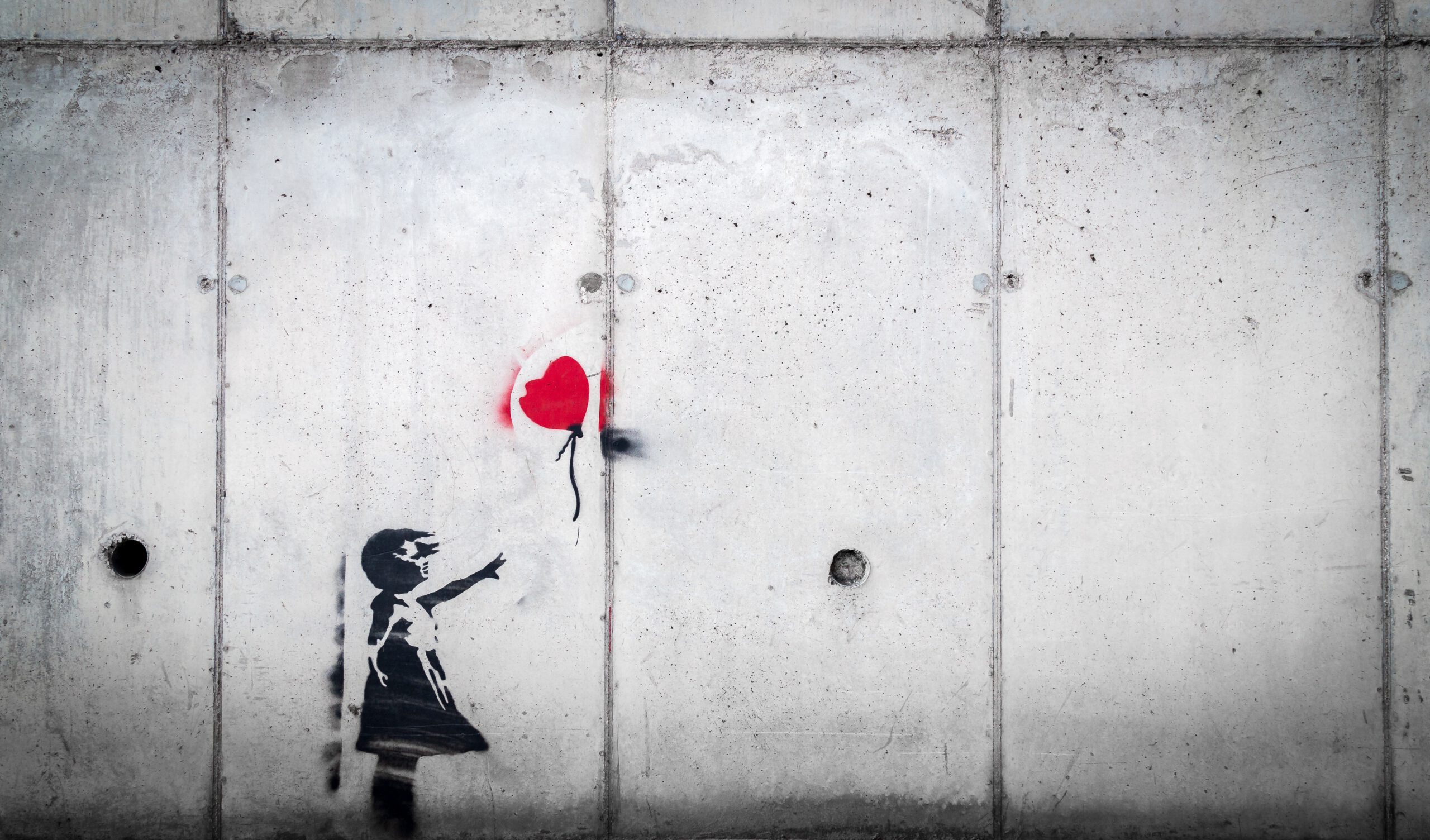We all know it… Doing or taking something while you know it’s better to stay away from it. Yet it seems impossible to stop yourself. Something invisible pushes you towards it with all it’s might…
In her latest book “I Am Enough”, Marisa Peer, the founder of RTT, identifies the key beliefs underlying addictions:
1. I don’t belong (I’m not connected)
2. I’m not enough (I’m not worth it)
1. I don’t belong
Our mind is constantly afraid of rejection and is always looking for connection. The need for connection is instinctive. Our survival brain pushes us to avoid rejection because long ago when we lived in tribes, we couldn’t survive unless you were connected. Unless you were connected, you couldn’t hunt for food, build a hut, and raise a family. You needed the group to survive.
De reden waarom we ons niet verbonden en afgewezen voelen is in de meeste gevallen al ontstaan in onze vroege jeugd door een traumatische gebeurtenis (groot of klein) die een grote leegte achter gelaten heeft. Bijvoorbeeld door buitensluiting of door afwijzing thuis of op het schoolplein.
The reason why we feel disconnected and rejected has in most cases already started in our early childhood due to a traumatic event (big or small) that left a void. For example, through exclusion or rejection at home or in the schoolyard.
This void is so painful that the mind will help fill it at all costs to never have to feel that pain again. In this way we have become accustomed – addicted – to the behavior or substance that fills the void of the lack of connection.
2. I’m not enough
Usually something in the first six years of your life tells you that you are not enough. This can be small, like a parent asking for perfection. Or big, like a parent who abandons or ignores you. Either way, you internalize the belief and move on.
Then, sometime during your life, this belief is reinforced by the norms and expectations of your environment and society. Eventually, the belief will find a way to manifest itself, in the form of insecurity, depression, or other limiting behaviors. Or in the form of addiction… The addictive behavior or substance is necessary to keep you away from the emptiness you feel inside: “I am not enough. I feel empty. I need more.”
Subconscious programs
In many cases, belief (not feeling connected/not feeling enough) turns into self-rejection. You resign yourself to the fact that you will never be who you want to be. Our conscious mind just assumes it’s our own fault: that we’re lazy, that we’re incapable of it, that we simply cannot change it, that this is how life will be. It has become a belief, a conviction. Meanwhile, the root causes of rejection and lack of connection continue to work in your hard-to-reach subconscious mind.
Once you have internalized the belief, it’s very hard to even realize it’s affecting you. It is that fundamental and deep-rooted. Especially when society reinforces the conviction “I am not enough” in many ways, because so many ideals are presented to us every day via the (social) media.
It leaves a great void that needs to be filled. And there are many (at first seeming harmless) ways in our society today to fill this void externally. Drinking, eating, buying, smoking, netflixing, collecting, social media. A list of modern addictions that are very easily available.
Medicine for the pain
Our brain’s purpose is to keep us alive. To do this it will always take you to that which brings pleasure (connection) and keep you away from pain (rejection). It will also always try to hold on to what is known (familiar) and keep away from what is unknown because the familiar is perceived as safer – after all, you are still alive.
Het brein zal je proberen weg te houden van de pijn ervaring en daarvoor geeft het je dopamine uit de chemische fabriek in je brein als je erin slaagt om de pijn te verlichten, dus als je de leegte opvult.
The brain will try to keep you away from the pain experience and therefore it gives you dopamine from the chemical factory in your brain if you manage to relieve the pain, in other words: when you fill the void.
Addiction is a way of moving from feeling bad to feeling good. Then you become attached to that which makes you feel good and it becomes familiar. Then you lose the good feeling again because it is always a temporary solution. And then the cycle repeats itself because your brain takes you to that which is familiar.
The cycle is started by a past experience. A traumatic event (rejection) that left a void that needs to be filled. An unmet need (connection) that was filled with external solutions and which still needs to be filled with external solutions. Basically, you are giving yourself a medicine for the pain.
Addiction Cycle A habit forms through repetition, because through repetition our brain “learns” what is familiar and this is programmed into our subconscious mind. Neural pathways are created and deepen each time we “walk” the pathway. They become, as it were, programs on which we live our lives.
A habit forms through repetition, because through repetition our brain “learns” what is familiar and this is programmed into our subconscious mind. Neural pathways are created and deepen each time we “walk” the pathway. They become, as it were, programs on which we live our lives.
The more times the cycle repeats itself, the harder it is to change it. Then we’re talking about habits. For to the mind the pattern/habit is known and familiar, and therefore safe.
We can of course also use this mechanism for programming positive, reinforcing programs.
Key to liberation 1: Recognize the trigger thought
Everything that happens in your life starts with a thought. Everything that doesn’t work well for you (addiction, depression, anxiety, insecurity) is because of a thought (e.g. I’m not enough). Everything that works well for you (confidence, courage, joy, sports) also comes from a thought (e.g. I am enough).
Addictions are “habits of action” driven by “habits of thought.” The thought leads to a feeling and the feeling stimulates our behavior. The behavior in turn will reaffirm the trigger thought because addictions generally don’t lead to our happiest selves (weight gain, unhealthy, tired, distracted, poor).
 By changing the thought process (the trigger thoughts), as well as the habit itself, the addiction cycle can be broken. So, what we need to do is become aware of the trigger thought: What thought prompts us to “fill the void”?
By changing the thought process (the trigger thoughts), as well as the habit itself, the addiction cycle can be broken. So, what we need to do is become aware of the trigger thought: What thought prompts us to “fill the void”?
Once you are aware of this, you can turn it into a positive, empowering thought in the moment. In the example – see picture – you turn the trigger thought “I will always be alone” to “I will find a loving relationship”.
Even if you don’t believe it, your mind simply lets the new thought in and over time will be less inclined to fill the void. Give it a try! Make the reversed “trigger thought” your mantra or affirmation. Write it on your mirror, say it in the shower, make it your new truth.
See also the blog “Looping Thoughts”
Key to liberation 2: give yourself what you need
Another route to liberation is to give yourself what you need. What you didn’t get in that traumatic event or childhood experience that you needed so much, e.g. attention, love, recognition, appreciation, connection. You are no longer that helpless, powerless child who had no choice, who depended on adults for connection. You are now an adult yourself and you can do it yourself.
Say out loud to yourself every day:
I am enough
I matter
I am significant
I’m here for a reason
I belong
I have talent and love to contribute
I have something to give to the world that no one else can give
If you say these types of affirmations often enough, it sinks into your subconscious brain (like lotion in dry skin). It will feed you and you will begin to accept it, know it, believe it and see it! The need to fill the void will diminish, melt, shrink and then… it will go away.
At this point you may not believe it yet, but it is really true. You are enough. Exactly as you are. You don’t have to be anything more or less to belong, to matter, to be worthy of love and connection. You deserve it, you are already worth it.
If you know that you are enough, you don’t need anything more than that.
Addiction can be transformed!
It is up to you to break the cycle. Addiction is not a disease or a character trait. You have the power and the strength within you to change it. To break the cycle. You can do it. I believe in you.


